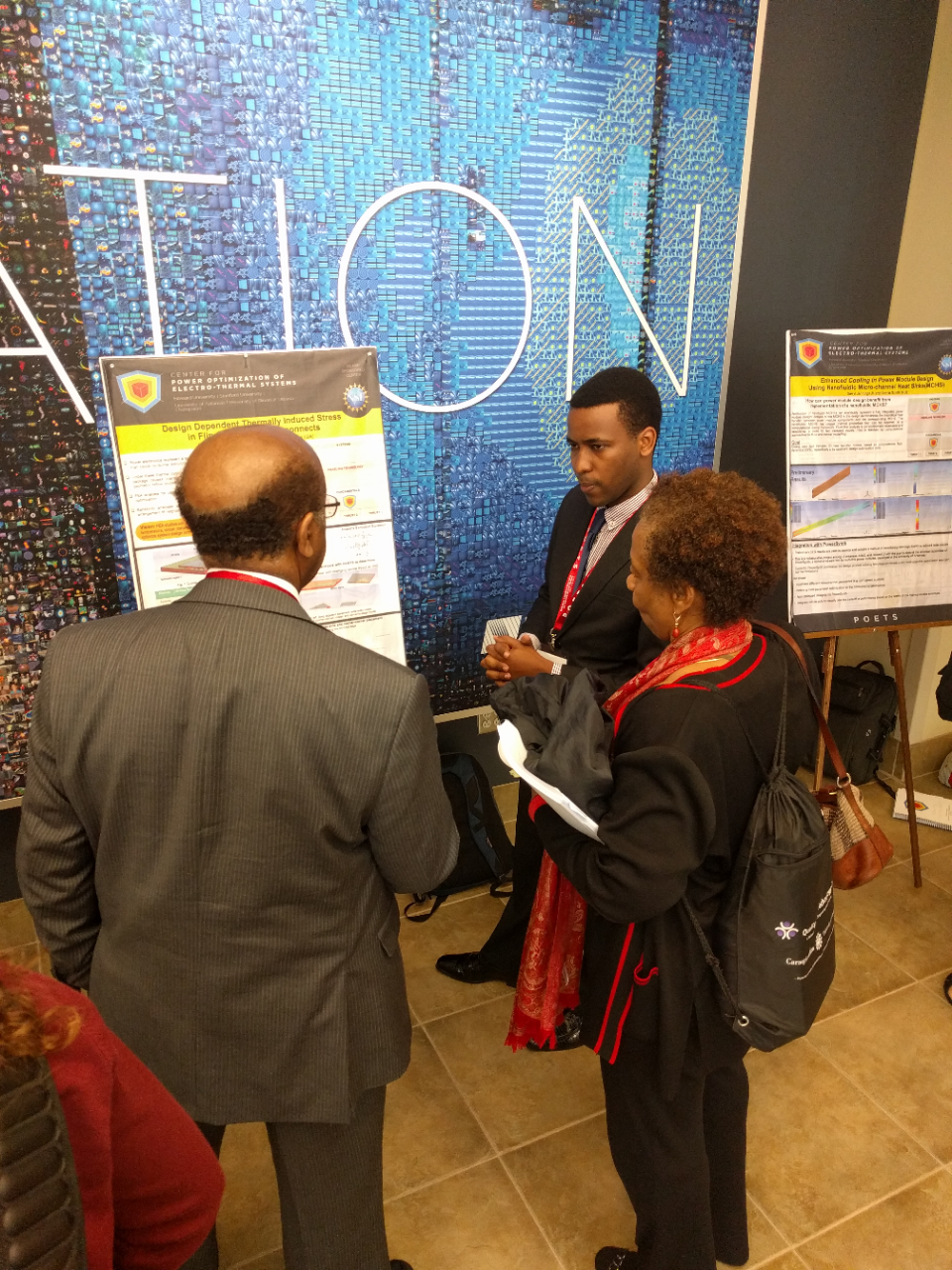Ange Iradukunda, an honors mechanical engineering major working with electronic module optimization, recently presented his research at the Power Optimization for Electro-Thermal Systems technical conference in Illinois, where he was able to expand his knowledge of related design variables and interact with leading experts in the field. Ange was the only undergraduate granted this opportunity at the conference, and recounts the experience here.
As part of honors research, I have been working on the Power Optimization for Electro-Thermal Systems (POETS) Project. POETS is an NSF Engineering Research Center with the aim of increasing the power density of electrical systems. Basically, the center is working to fit more power into smaller footprints. The University of Arkansas is a member of the center along with Stanford, the University of Illinois at Urbana-Champaign and Howard University. Every year, a POETS technical conference is held, coinciding with the site visit by the NSF review panel for the Center. Thanks to an Honors travel grant, I had the opportunity to attend this year’s conference in Illinois and present my work.
The advent of flip chip technology, which is a method of connecting the semiconductor die to the packaging has made it possible to move electronic modules closer and closer together on a substrate. This increases power density, but it also drives higher mechanical stresses and reliability risk because of neighboring device sensitivity. My research has been on how system layout of such modules can be co-optimized for performance and reliability. I have taken a computational approach, whose results will be correlated to experimental testing.
I presented my research during the three-day technical conference. I was the only undergraduate to do so in front of faculty, industry representatives and other students, most of whom were masters and PHD candidates. The talk was received well and was followed with a lively discussion full of great questions. In addition to the presentation, I also participated in a poster session in which I explained my research to the NSF review panelists.
The conference was a great opportunity to share and learn from others, who are involved with POETS. It gave me a clear picture of where my work fits in within the center. My research informs design for reliability, which is at the center of it all. I received feedback and recommendations on the next steps, including looking at the effect of other system design variables such as geometry, device material and additional layout modes. The conference provided a great opportunity to network with other students and faculty and hear about their research in exciting areas such as carbon nanotube chip cooling and heat sink shape optimization. To cap off the conference, we visited a John Deere facility in Moline, Illinois to see how our research is applied to real-life designs and engineering. The trip gave me a great introduction to speaking and participating in research conferences, which I will do a lot of in the years to come as I pursue a graduate degree.

